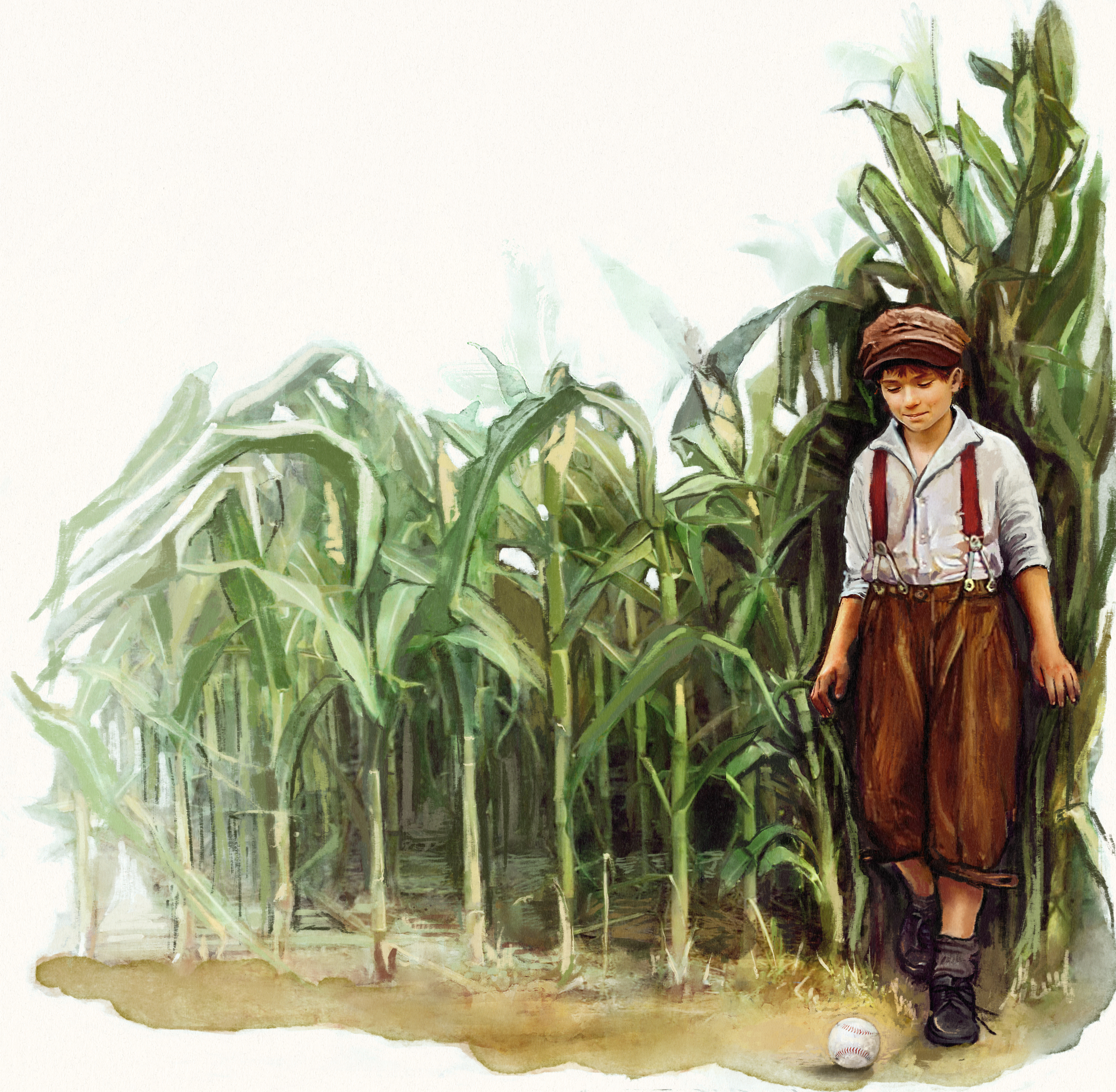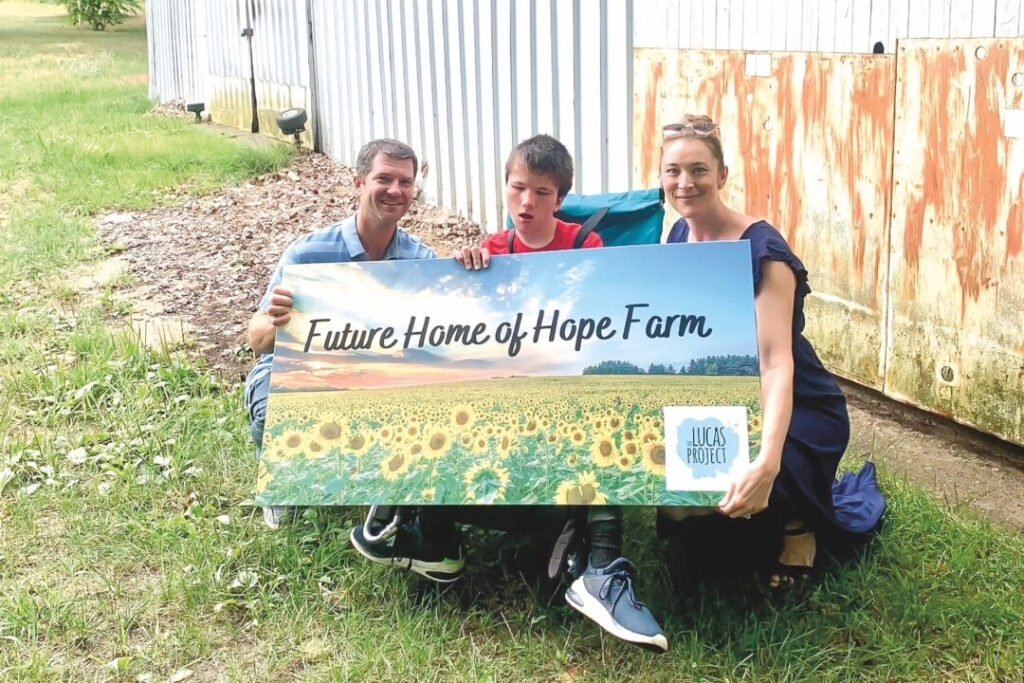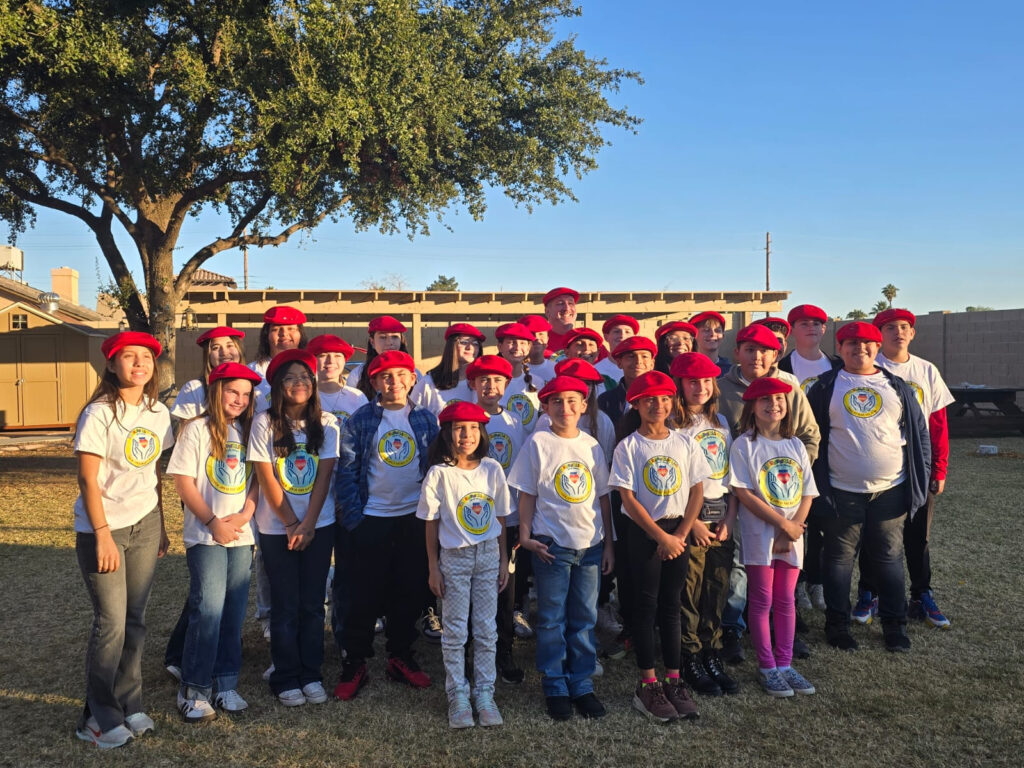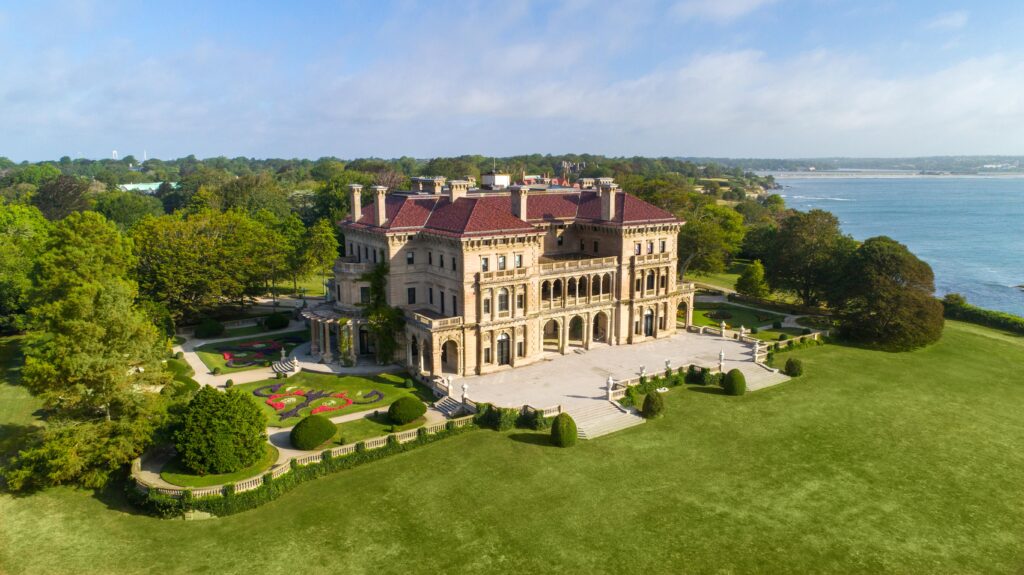The young, 8-year-old Andy eyed the baseball arching high in the air, down the right field line into foul territory, as it left the sandlot playing field. The wayward ball sailed 35 feet into a bordering cornfield and rested approximately 300 feet from its origination: home plate.
For most of the crowd watching the baseball game that Sunday afternoon in the summer of 1926, the ball was out of sight and out of mind. But not for Andy. The nascent baseball enthusiast was currently a temporary truant of St. Michael’s Orphanage, which housed more than 400 children on 340 acres of farmland. The orphanage bordered the borough of Hopewell, a small town of 2,000 residents and seven working farms, nestled in the valley of central New Jersey’s Sourland Mountains.
One child, Andy, was missing—his absence yet unnoticed—but for good reason. Andy was on a mission. He and his baseball buddies needed a ball for their daily pickup games. This foul ball was the fortuitous moment he had been patiently waiting for.
Andy rose, his eyes tracking the ball’s flight. “Yes,” he silently declared, “this is it.”
He sprinted into the cornfield, disappearing among the multiple rows of the 10-foot stalks of corn. Spying the ball, he snatched it, jammed it into his front pocket, and then ran as fast as his legs could carry him back to the orphanage.
Game on!
Andy loved baseball—long considered America’s pastime. He passed that love of the game, and the game’s guiding principles, on to his family, friends, and the many players he coached through his life. Andy was a melting pot child of early-20th-century America: a product of immigrant diversity. His father was Italian and his mother was Irish. Andy and his three younger siblings ended up in St. Michael’s soon after the untimely death of their mother, before her 30th birthday.
But this is not a story of lifelong disadvantages. Rather, it’s a quintessential American story of how baseball and its national game melded values into Andy. A story of how a rural, small town in America, inculcated with old-fashioned patriotism and a hardscrabble work ethic, served Andy a slice of Norman Rockwell’s America and forged for him an America worthy of love, veneration, and preservation.
Andy never returned that errant baseball. However, he did return to Hopewell as a 24-year-old adult to raise a family, start and operate a retail gasoline business, and help found the local Little League Baseball as well as organize/coach a local baseball team. In fact, Andy was considered by many to be the Branch Rickey (American baseball player, coach, and civil rights leader) of the neighboring Hunterdon County Baseball League. Andy introduced the first black players to league play in the 1950s with his Hopewell town team. In World War II, he joined the U.S. Navy, leaving his wife and two children behind, and served in the Pacific Theater aboard a PT-Boat (patrol torpedo boat) that sunk two Japanese destroyers, during combat, in the waters of New Guinea and the Philippines. For Andy, America was not just worth loving, it was worth fighting for.
The intrinsic values of baseball and the community cohesiveness of Hopewell are captured in the following nine truisms that Andy espoused and lived by. They spring mostly from the great American playbook that is baseball and are rooted in the small-town sensibility that was Hopewell. They’re what makes America great. They make America worth revering, worth heralding, worth celebrating, and worth loving.
- No one bats a thousand, but never stop trying. Failure is not condemnable, but failing to try is.
- Run 90 feet. Home plate to first base is 90 feet. Give 100 percent effort: Run 90 feet.
- When you get your pitch, jump on it. Don’t let opportunity pass you by.
- Take two, hit to right. Hit the ball where it will do most toward achieving success. In baseball that means scoring runs. In life, you achieve success through completing your assigned task.
- Let your bat and glove do your talking. Perform deeds, not (boastful) words.
- Hustle, always hustle. Give every endeavor your best effort.
- Recognize the meritorious efforts of others. Give credit to others. Your competitor or your fellow worker are trying to be the best they can be as well.
- Look for two, look for two. Look for the opportunity to go for the next base. One’s reach should always exceed one’s grasp.
- Make something happen. Both baseball and America reward tireless effort and perseverance. In order to succeed, you must do more than show up: You must make something happen.
Why do you love America? What makes it worth celebrating? What moves you about the people and places that make up our country? Tell us in a personal essay of about 600 to 80 words. We welcome you to send your submission to: [email protected]
From April Issue, Volume 3













